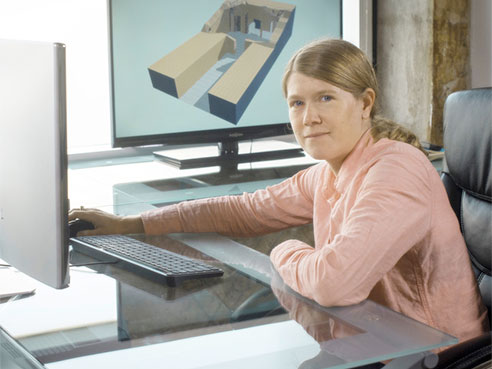Written by: Tiffany Westry
Need more info? Contact us
 Sarah Parcak, Ph.D., archaeologist and associate professor in the Department of AnthropologySarah Parcak, Ph.D., archaeologist and associate professor in the UAB College of Arts and Sciences Department of Anthropology, has been named to the World Economic Forum’s community of Young Global Leaders.
Sarah Parcak, Ph.D., archaeologist and associate professor in the Department of AnthropologySarah Parcak, Ph.D., archaeologist and associate professor in the UAB College of Arts and Sciences Department of Anthropology, has been named to the World Economic Forum’s community of Young Global Leaders.
The Forum of Young Global Leaders is a community of more than 800 of the world’s most up-and-coming artists, business leaders, social entrepreneurs, tech pioneers, thinkers and policymakers. Each year, 100 of the most innovative, enterprising and socially minded men and women under the age of 40 who are pushing boundaries and rethinking the world around them are selected to join the community. The World Economic Forum was established in 1971 as a not-for-profit foundation and is headquartered in Geneva, Switzerland.
Parcak is an expert in the field of remote sensing. She uses earth-facing satellites to collect high-resolution imagery in order to locate potential archaeological sites around the world. She is a TED senior fellow, a National Geographic fellow and the recipient of the 2016 TED Prize. With the $1 million prize, Parcak and a team of experts established GlobalXplorer, which launched in January 2017. The citizen science and archaeology platform allows anyone with an internet connection to review satellite imagery to search for looted sites and discover sites previously unknown to modern archaeologists. The platform also serves as a hub for conversations about new sites discovered, protected sites and the future of technology in archaeology. Peru was selected as the first project site for GlobalXplorer.
Parcak has gained international attention for satellite mapping all of Egypt and unearthing 17 potential unknown pyramids (adding to the 138 known ones), 1,000 tombs and 3,100 settlements. She and her team have since uncovered thousands of additional ancient sites across Europe, the Mediterranean and the North Atlantic, and have also used satellite technology to map extensive looting in post-revolution Egypt. Recent discoveries include a previously unknown structure in Petra, a 2,500-year-old Nabataean city in southern Jordan, and evidence of a potential second Viking site in North America, the subject of PBS NOVA’s two-hour special, “Vikings Unearthed.”
This year’s Young Global Leaders cohort will be asked to work with one another over the next five years to resolve some of the world’s toughest challenges. Click here to learn more about GlobalXplorer.